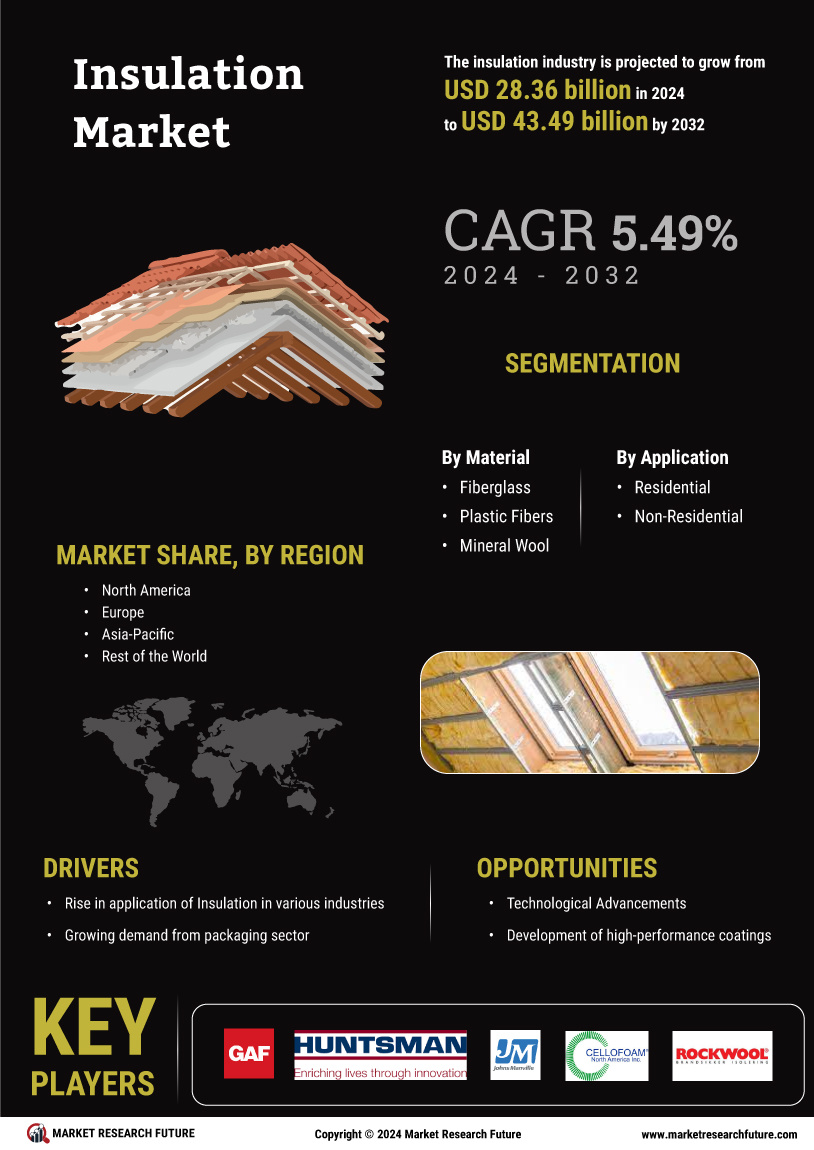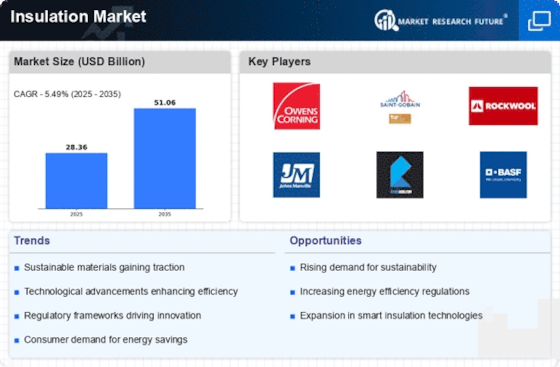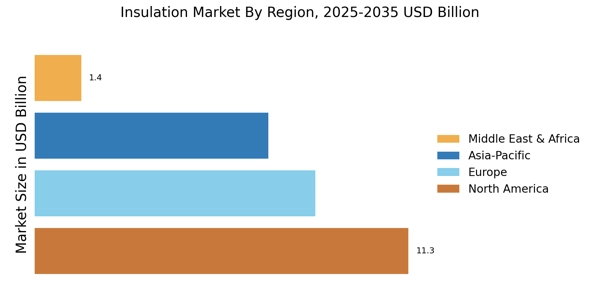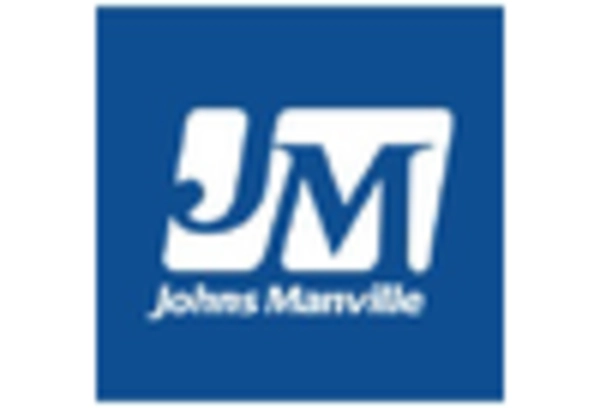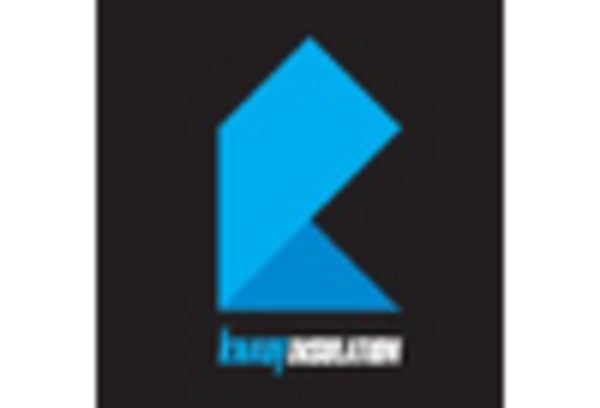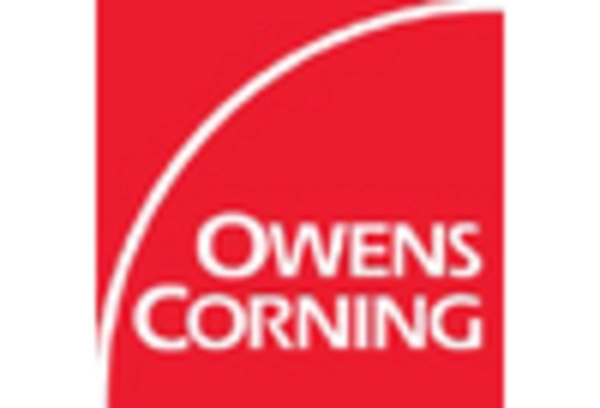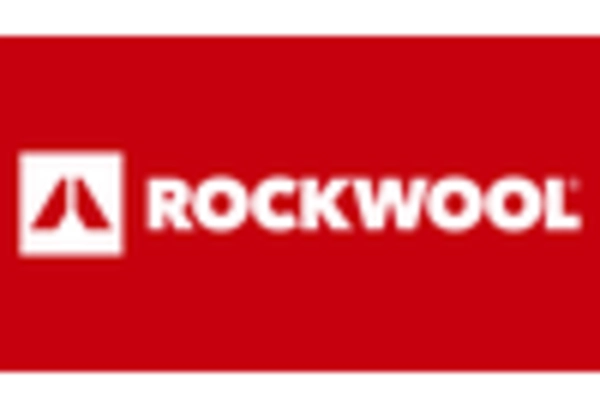Rising Energy Efficiency Standards
The Insulation Market is experiencing a notable shift due to the increasing emphasis on energy efficiency standards. Governments and regulatory bodies are implementing stringent regulations aimed at reducing energy consumption in buildings. For instance, the International Energy Agency has reported that energy-efficient buildings can reduce energy use by up to 50%. This trend is driving demand for advanced insulation materials that meet these standards, thereby enhancing the overall performance of buildings. As a result, manufacturers are focusing on developing high-performance insulation solutions that not only comply with regulations but also provide long-term cost savings for consumers. The growing awareness of energy efficiency is likely to propel the Insulation Market forward, as stakeholders seek to invest in sustainable building practices.
Expansion of Construction Activities
The Insulation Market is poised for growth due to the expansion of construction activities across various sectors. As urbanization continues to rise, there is an increasing need for residential, commercial, and industrial buildings. According to recent data, construction spending is projected to increase, leading to a higher demand for insulation materials. This growth is particularly evident in emerging markets, where infrastructure development is a priority. The Insulation Market stands to benefit from this trend, as builders seek to incorporate effective insulation solutions to meet energy efficiency goals and enhance building performance. Consequently, the expansion of construction activities is likely to serve as a catalyst for growth within the Insulation Market.
Increased Awareness of Indoor Air Quality
The Insulation Market is also being shaped by the growing awareness of indoor air quality (IAQ) among consumers and builders. Poor insulation can lead to air leaks, resulting in increased energy costs and compromised indoor environments. As a result, there is a heightened focus on insulation materials that not only provide thermal efficiency but also contribute to better IAQ. Products that are low in volatile organic compounds (VOCs) and have moisture-resistant properties are becoming more sought after. This trend is likely to influence purchasing decisions, as stakeholders prioritize health and comfort in their building projects. The Insulation Market is responding to this demand by developing and promoting insulation solutions that enhance both energy efficiency and indoor air quality.
Growing Demand for Sustainable Construction
The Insulation Market is witnessing a surge in demand for sustainable construction practices. As environmental concerns become more pronounced, builders and architects are increasingly opting for eco-friendly materials. The use of recycled and renewable insulation products is gaining traction, with a reported increase in market share for such materials. For example, cellulose insulation, made from recycled paper, has seen a rise in popularity due to its low environmental impact. This shift towards sustainability is not only driven by consumer preferences but also by the need to comply with green building certifications. Consequently, the Insulation Market is adapting to these trends by innovating and offering a wider range of sustainable insulation solutions that align with the principles of sustainable development.
Technological Advancements in Insulation Materials
The Insulation Market is significantly influenced by technological advancements that enhance the performance and efficiency of insulation materials. Innovations such as aerogel and vacuum insulation panels are revolutionizing the market by providing superior thermal resistance in thinner profiles. These advanced materials are particularly appealing for applications in space-constrained environments, where maximizing energy efficiency is crucial. Furthermore, the integration of smart technologies into insulation products is emerging, allowing for real-time monitoring of thermal performance. This technological evolution is expected to drive growth in the Insulation Market, as consumers and builders increasingly seek high-performance solutions that offer both energy savings and improved comfort.
